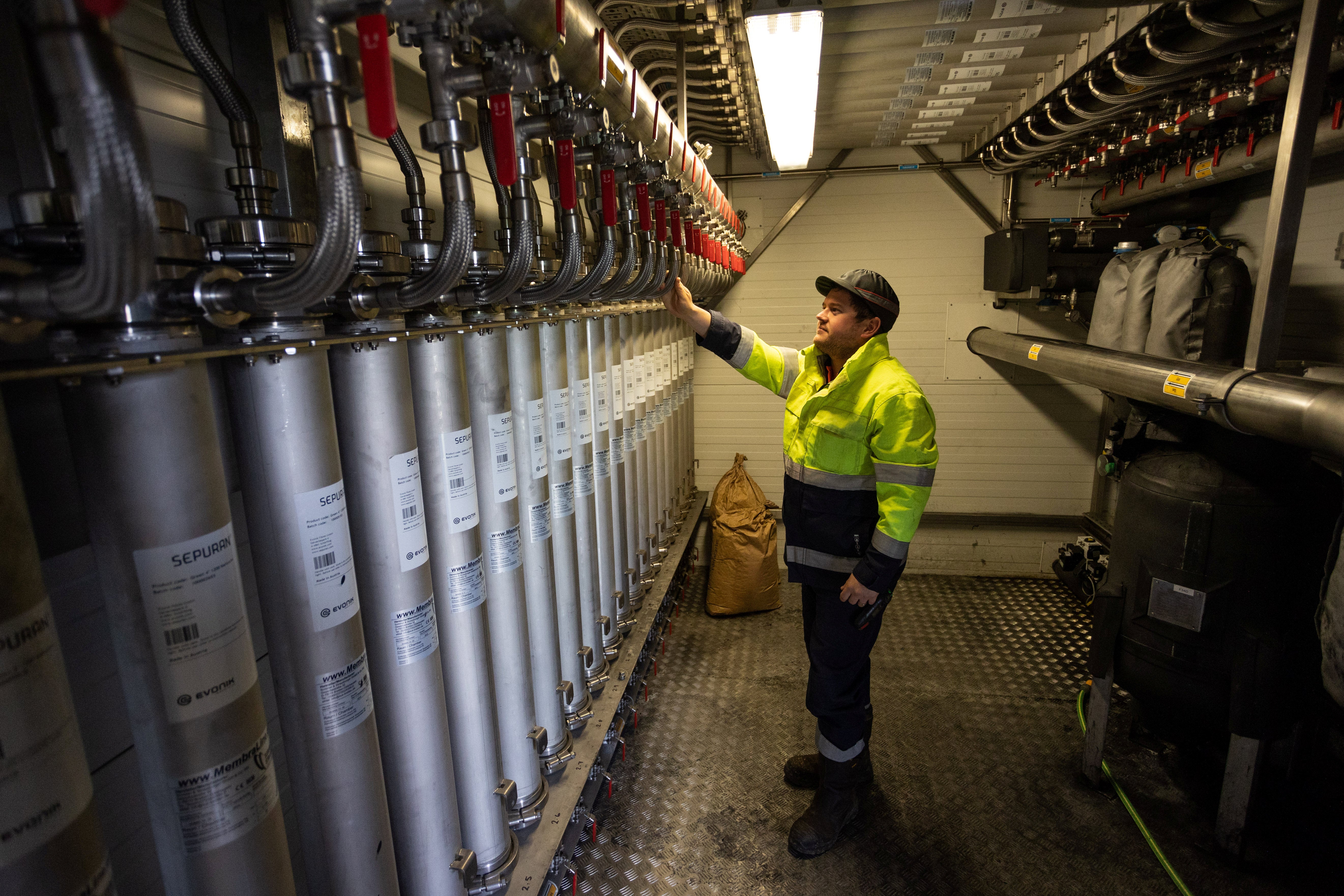How UK town entirely powered by local organic matter could have answers to energy crisis
Locally produced renewables ‘key’ to helping energy crisis, Tory MP says

A town in Devon is having all of its gas needs met by a local plant that turns chicken manure and crops into energy, with a local MP saying it could hold answers to the energy crisis.
The factory deals in biogas, a form of renewable energy created by processing organic materials such as farm waste, crops and animal manure in the absence of oxygen.
Ixora Energy said its Devon plant was pumping enough gas into the local grid to fuel all of the 2,000 homes in South Molton.
It comes amid an energy crisis driven by international gas prices and the war in Ukraine, which has sent bills soaring.
In a bid to address this, the UK government vowed to boost domestic energy production – in both renewables and fossil fuels – earlier this month to help the country become more energy independent.
But nestled in a corner of north Devon, the town of South Molton is already getting much of its energy from local resources.

Ixora Energy said its plant uses chicken manure and crops provided by local farmers as its primary materials that get turned into biogas. This then gets turned into renewable gas and electricity injected into the local grid.
It said Condate Biogas, which sits just 1km outside of South Molton, was pumping enough gas into the local grid to heat 2,389 homes.
“South Molton has 2,171 homes, so we can confidently say that we supply the entire town and local villages with green gas,” the energy company said.
As of April, it said the plant was pumping enough renewable electricity into the grid to power 934 homes – but it was hoping to increase this further by improving efficiency.
Selaine Saxby, the Tory MP for North Devon, said: “It is incredible to think that South Molton’s homes are being powered by renewable gas and electricity thanks to Condate Biogas’s anaerobic digestion facility.
“Since 2016, anaerobic digestion has been powering South Molton and the facility currently provides enough renewable gas to meet the needs of every single home and also supplies 4 per cent of the town’s electricity.”

She added: “Having locally produced renewable energy is really important and it is key when it comes to helping solve the current UK energy crisis.
“It also contributes to future energy resilience as well as helping hit the government’s target of net zero by 2050.”
Biogas is considered an alternative energy source that can help to reduce emissions, as well as having the added benefit of being renewable.
Scientists have raised concerns over emissions from biogas – which is mainly made up of the potent greenhouse gas methane, which has a shorter lifespan than carbon dioxide but a much stronger warming effect on the planet.
Last year, Imperial College London researchers found up to 3.8 per cent of the UK’s methane emissions came from 10 biogas plants.
They warned that without tougher monitoring and clear guidance, biogas emissions could end up derailing the national target to hit net zero by 2050.






Join our commenting forum
Join thought-provoking conversations, follow other Independent readers and see their replies
Comments